The FreeBuds 4 are the newest member of Huawei’s ever-expanding family of audio products.
New true wireless earphones come out every week, so Huawei has its work cut out trying to make the FreeBuds 4 stand out. It’s not just external competition — the FreeBuds 4 go up against Huawei’s own FreeBuds 4i (which are cheaper, but still good) and FreeBuds Pro (in theory more expensive, but objectively better).
So how can this middle child make itself noticed? Our Huawei FreeBuds 4 review gives you the rundown.
What you need to know about the FreeBuds 4
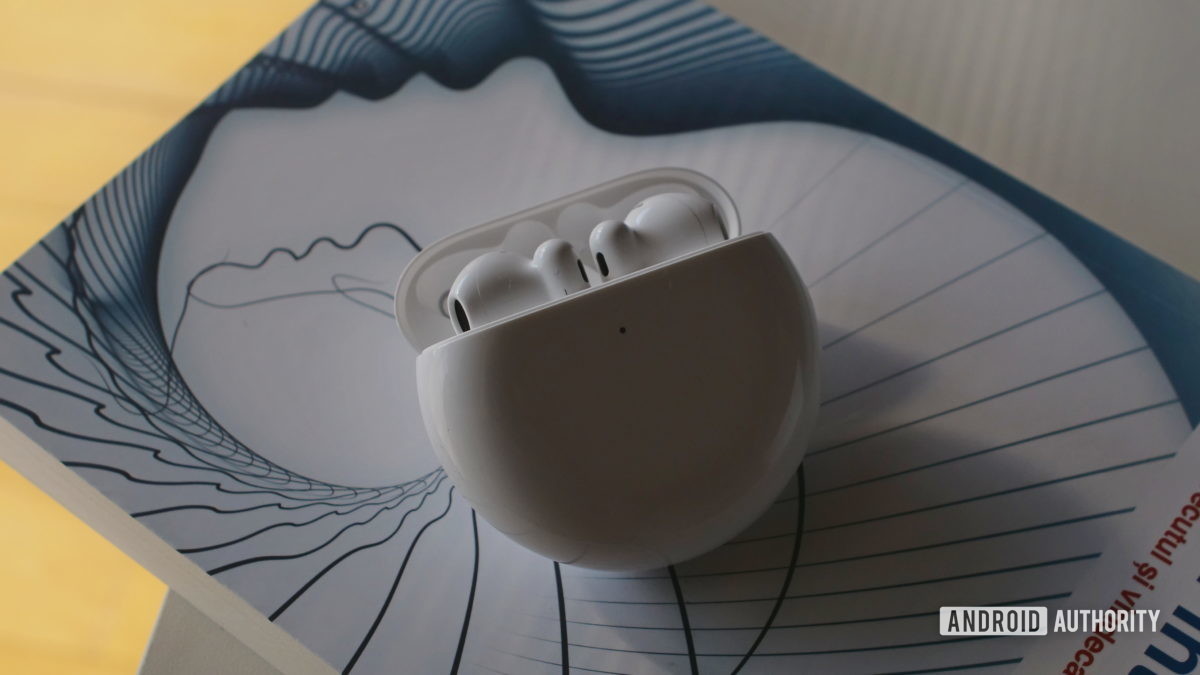
- Huawei FreeBuds 4: £129/€149 (frequent discounts and promos available)
The FreeBuds 4 are the mid-range option in Huawei’s lineup of true wireless earphones.
Like the FreeBuds 4i and FreeBuds Pro, these are active noise-cancelling (ANC) earphones, meaning tiny internal microphones emit sound waves at certain frequencies to combat external noise. Unlike the other two products, the FreeBuds 4 are “open-fit,” meaning they lack the silicone tips that go into your ear canals, leaving your ear canals semi-open.
Learn more: Headphones buying guide
The FreeBuds 4’s claim to fame is an “all-new” adaptive noise-cancelling feature, which is supposed to adjust noise cancellation to suit the unique size and shape of your ears. That’s not something you can really test, so make of that what you will.
How’s the design?
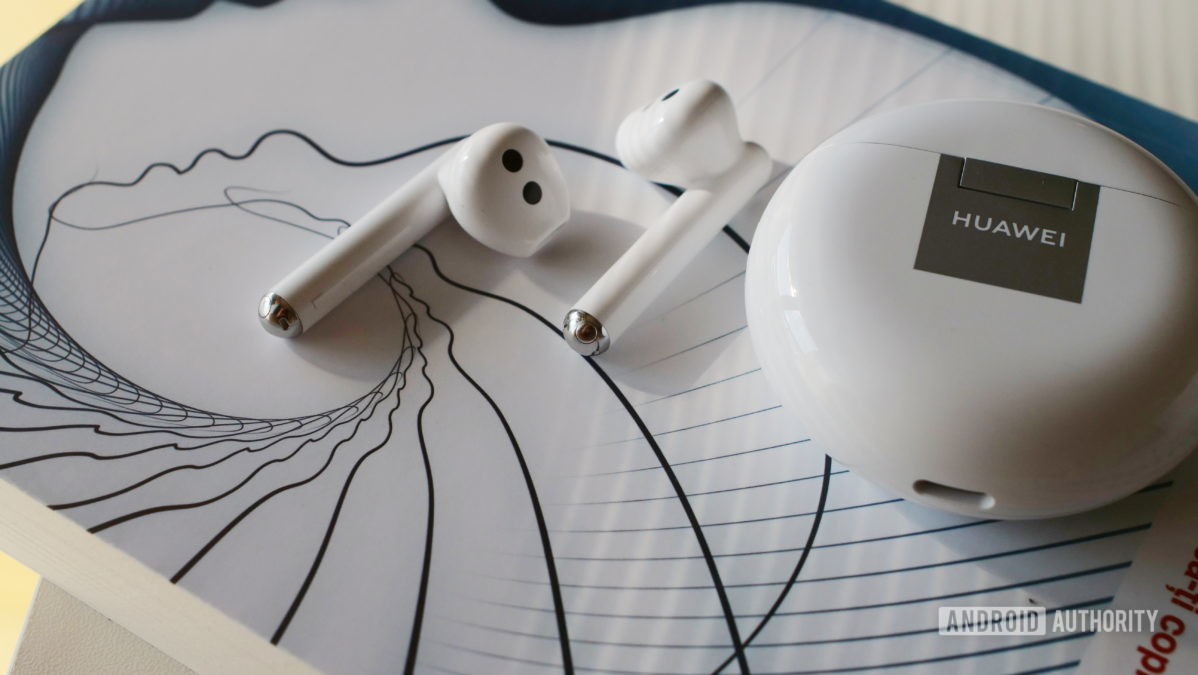
What I like most about the FreeBuds 4’s design is how comfortable and “easy-going” they are. Because they don’t plug into your ear canals, they don’t get uncomfortable to wear after extended listening sessions, assuming you can get a good fit with them. Sound quality and isolation come at the expense of the open-fit design, but plenty of people are open to that tradeoff — just look at the AirPods‘ popularity. Also, if you want or need to maintain awareness of your surroundings while listening, these are a good option.
The FreeBuds 4 look very similar to their direct predecessor, the FreeBuds 3. The main difference is the case is now slightly smaller and lighter. The earbuds themselves are a millimeter or two shorter, but otherwise look the same. Huawei seems content to reuse a design that harks back to Apple’s original AirPods.
Huawei FreeBuds 4 are available in white or silver colorways — the white version seen in this review is clean, but may seem rather bland. I appreciate the finish of the case, which is slightly grippier and less fingerprint-prone than both the 4i’s and last year’s FreeBuds 3 case.
How’s the sound quality and ANC?
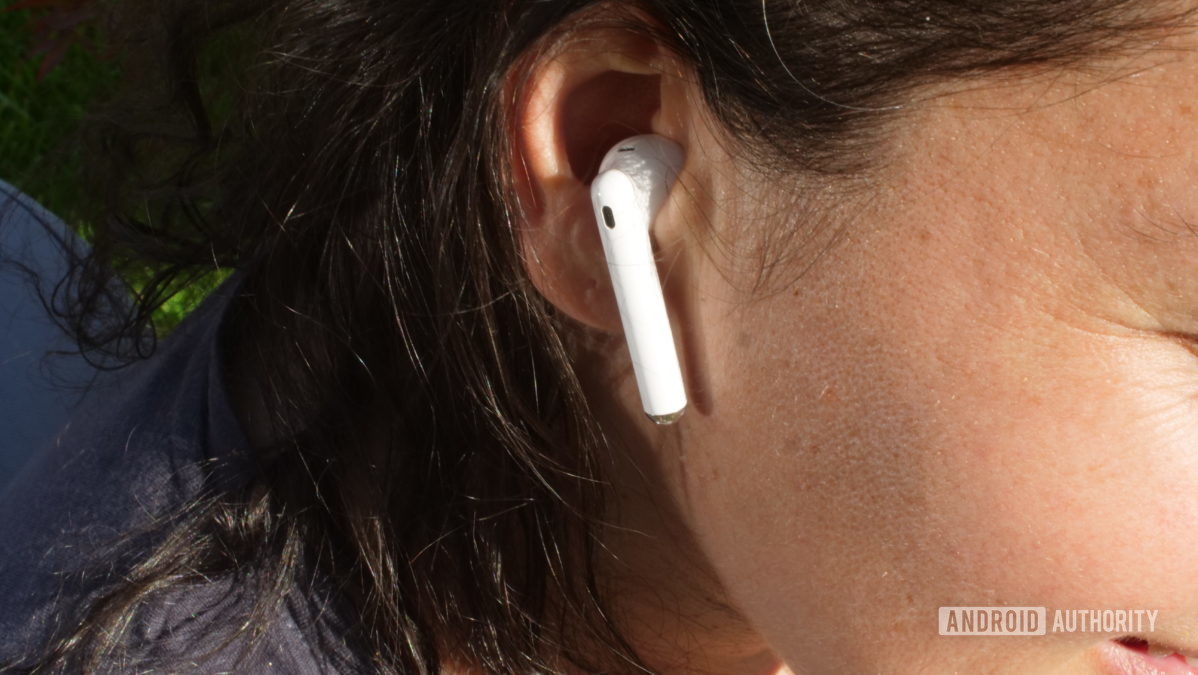
There’s no way around it: the open-fit design of the Huawei FreeBuds 4 affects sound quality.
Without silicone tips to isolate the speakers, sound slips out from your ears, so you’ll need to listen at a higher volume. For comparison, I could use the FreeBuds 4i at 25% volume on my laptop, but when I switched to the FreeBuds 4, I had to pump up the volume to 70% for a similar experience. That’s fine in a quiet environment like my backyard, but the lack of isolation will make listening in noisy environments much less pleasant than it could be. Listening at high volume is not good for the long-term health of your ears either.
The bass response will sound quieter than it should, which is just another consequence of an unsealed ear canal. These are not the earbuds for you if you enjoy thumping bass or listen to a lot of rap, R&B, or other genres that rely on bass.
If you accept the limitations of their open-fit design, the FreeBuds 4 sound quite good.
On the flip side, if you hate headphones that drown out vocals and high sounds in excessive bass, you’ll love the FreeBuds 4. They de-emphasize the low end, allowing you to more easily hear vocal and string harmonics.
That’s not to say the FreeBuds 4 sound bad. If you accept the limitations of their open-fit design, these true wireless earphones sound quite good. There are lots of people out there who hate the “stethoscope” feel of in-ear earbuds. For them, the FreeBuds 4 are a solid option.
Huawei claims to have improved the ANC on the FreeBuds 4 compared to their predecessor. That might be the case, but I didn’t hear a significant difference. In fact, I barely noticed the ANC in most situations. These headphones aren’t a great buy for noise cancellation.
How’s the battery life?
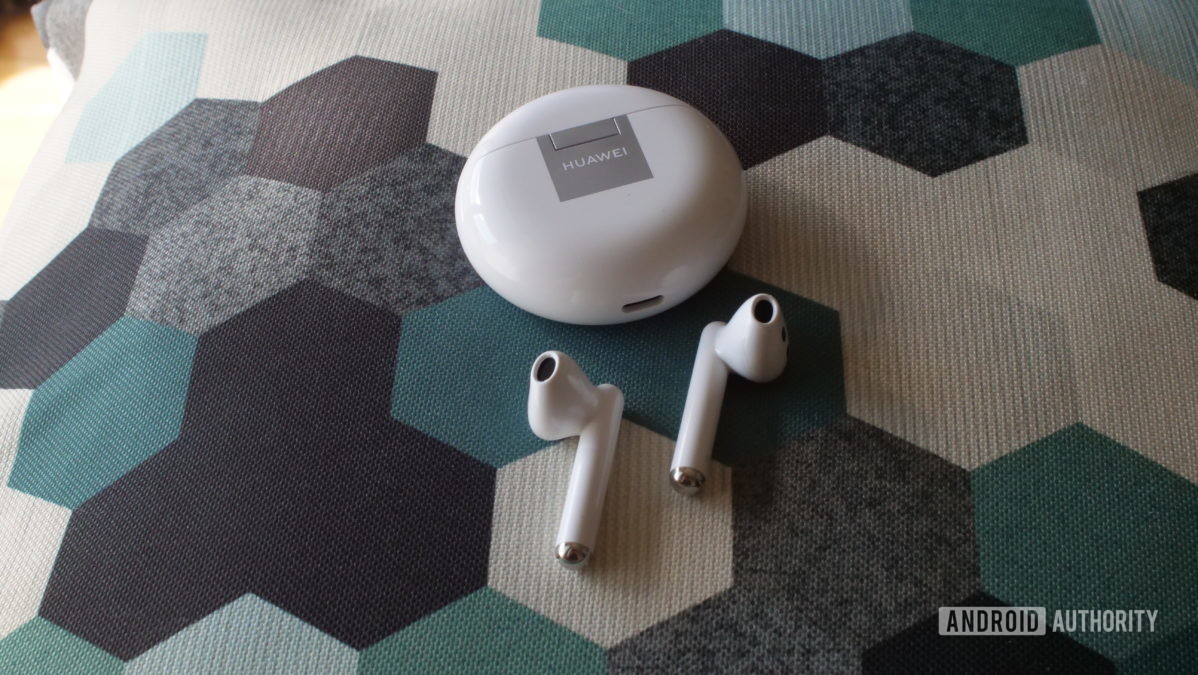
The FreeBuds 4 are rated for four hours of battery life with noise-cancelling turned off. Turning ANC on will reduce battery life to just 2.5 hours. Considering how imperceptible the ANC is, most users should keep this feature switched off.
The battery inside the case brings another 22 hours (ANC off) to the table. Depending on your usage patterns that means you could charge the case on Monday and not worry about it until Wednesday or Thursday. Of course, if you use the earbuds extensively, you’ll have to plop them back into the case every three or four hours.
Charging the earbuds inside the case takes about an hour. That’s how long you’ll need to charge up the case as well. The case itself charges via USB-C. There is also a version of the FreeBuds 4 that comes with a case that can be charged wirelessly, though this isn’t available to buy at the time of writing.
The FreeBuds 4 do not support wireless charging, which is a step backwards compared to the FreeBuds 3.
Four hours of battery life isn’t spectacular these days — even Huawei’s £80 FreeBuds 4i offer up to 10 hours on a single charge, albeit with a smaller battery in the case. Samsung’s Galaxy Buds Plus meanwhile reached over 11 hours of listening time in our testing (also with a smaller battery in the case).
What other features do the FreeBuds 4 have?
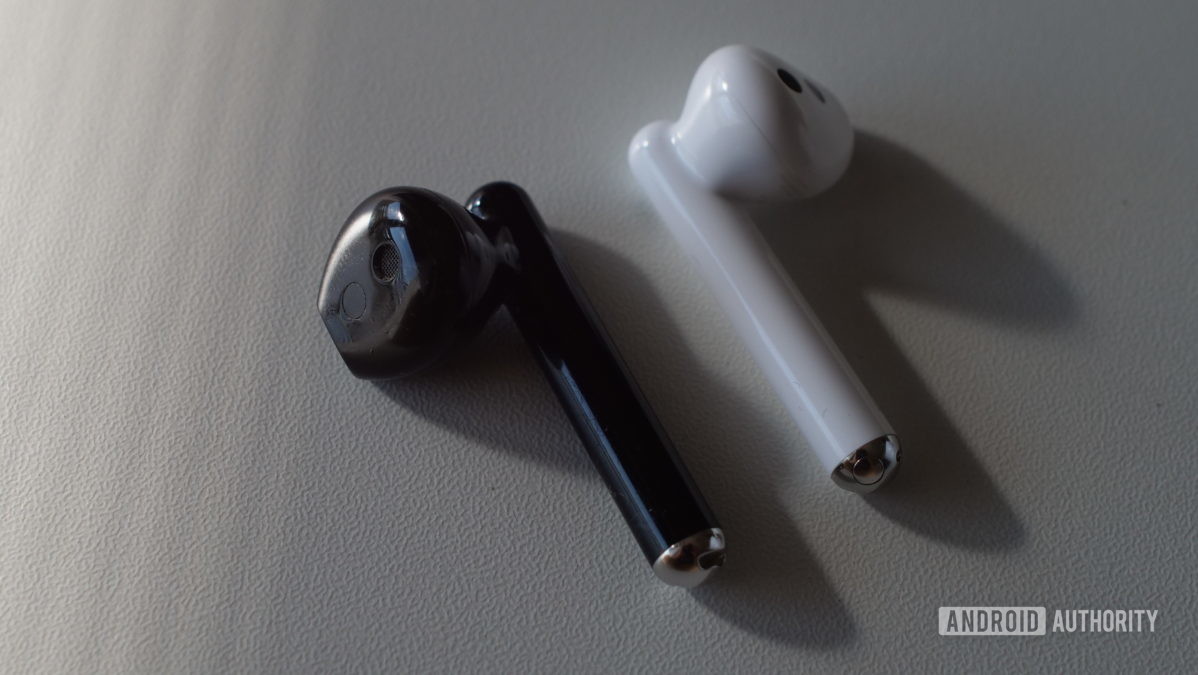
The FreeBuds 4 feature Bluetooth 5.2 connectivity and support Bluetooth multipoint. That means you can have them connected to, say, your laptop and smartphone at the same time, which is great for taking calls without skipping a beat. Personally, I find this feature a bit annoying, but you can disable it from the companion Huawei AI Life app.
AI Life lets you check battery life for the case and each earbud, toggle Bluetooth connections, and customize the touch gestures. Speaking of which, it’s good to see that the FreeBuds 4 now have swipe-to-adjust-volume gestures, in addition to double taps (for playback control) and squeezes (for toggling ANC).
Read more: What are the best noise-cancelling earbuds?
The Find My Earphones function in AI Life lets you play each earbud at max volume, potentially allowing you to find them when you inevitably misplace them.
Finally, wear detection stops playback when you take off the earbuds and resumes it when you put them back in. This is great (and helps with battery life), but sadly this feature only works with phones, not laptops.
Anything else?
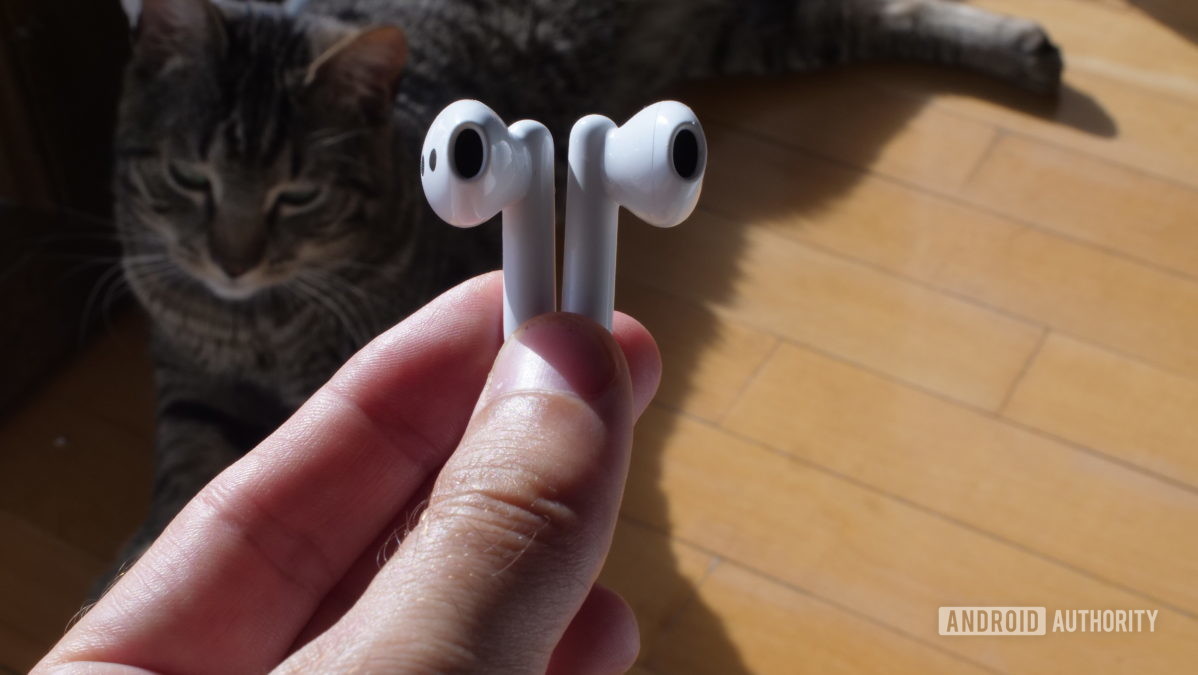
- The case: The FreeBuds 4 case feels well made. It’s also really easy to remove the earbuds from it, unlike with the FreeBuds 4i.
- Compatibility: Huawei is saving some features for its ecosystem, including devices powered by its new(-ish) Harmony operating system. These include quick pairing and the ability to transfer playback from a smartphone to a Huawei TV or tablet paired with the FreeBuds. The good news is you’re not missing any crucial features if you’re using them with devices from other brands.
- Water resistance: You can safely use the FreeBuds 4 in the rain, thanks to the IPX4 water resistance certification.
FreeBuds 4 specs
| Huawei FreeBuds 4 | |
|---|---|
| Size | Earbuds: 41.4 x 16.8 x 18.5mm Case: 58 (diameter) x 21.1mm |
| Weight | Earbuds: 4.1g Case: 38g |
| Connectivity | Bluetooth 5.2 Dual device connection |
| Sensors | Touch: Swipe, double-tap, press and hold Ear on/off detection |
| Batteries | Per earbud: 30mAh Charging case: 410mAh 4h of music playback per charge (ANC off); 22h of music playback with case included (ANC off) |
| Charging | USB-C Charging time – earbuds: ~1h Charging time – case (no earbuds): ~1h |
| Speaker | 14.3mm dynamic |
| Audio | Active noise cancelling Call noise cancelling |
| Water resistance | IPX4 |
| Colors | Silver Frost, Ceramic White |
Value and competition
Supremely comfortable open-fit earbuds
At their launch price of £129, the FreeBuds 4 are £40 cheaper than the FreeBuds 3 were two years ago, but competition is stronger today.
The most obvious alternative to the open-fit FreeBuds 4 are the Apple AirPods, the OG of true wireless earphones. Available £159 or €179, the Apple buds look and work very similarly (not an accident). The Samsung Galaxy Buds Live (£159) also lack silicone ear tips, but sound quality is variable depending on the fit (a typical consequence of open-fit earphones).
More options on SoundGuys: Best noise-cancelling true wireless earphones
The options widen dramatically if you look at passive-sealing, silicone-tip-equipped options. The Amazon Echo Buds (2nd Gen) ($119) remain a great option for those looking for ANC in a great well-rounded package, and the new Sony WF-1000XM4 are even better, but pricier. Sadly, both pairs currently aren’t widely available across Europe, but US buyers should absolutely consider them. Meanwhile, Samsung’s Galaxy Buds Pro (£219) offer stellar battery life and decent ANC.
The strongest competition might come from Huawei’s other true wireless earbuds.
But the strongest competition might come from Huawei’s other true wireless earbuds. The FreeBuds Pro, launched late last year, offer all the same features as the FreeBuds 4, with superior sound quality, ANC that’s actually effective, and much better battery life. At the time of this writing, they are cheaper than the FreeBuds 4, at £116, making it very hard to recommend the newer model, unless you really want open-fit earbuds.
Huawei FreeBuds 4 review: The verdict

Two years ago, I reviewed the FreeBuds 3 and I really liked them. In the meantime, the industry has moved on, improving sound quality, battery life, and designs across the board. The FreeBuds 4 feel frozen in time — indeed, there’s not much new to talk about when you compare them to their predecessor.
The FreeBuds 4 feel frozen in time.
If you’re looking for open-fit true wireless earbuds, the FreeBuds 4 are a decent option. They’re very comfortable, they sound good, and the battery life (with the case included) is satisfactory.
But if you want superior sound quality, passive isolation, and real active noise cancellation, there are many better options out there, including Huawei’s own FreeBuds Pro.